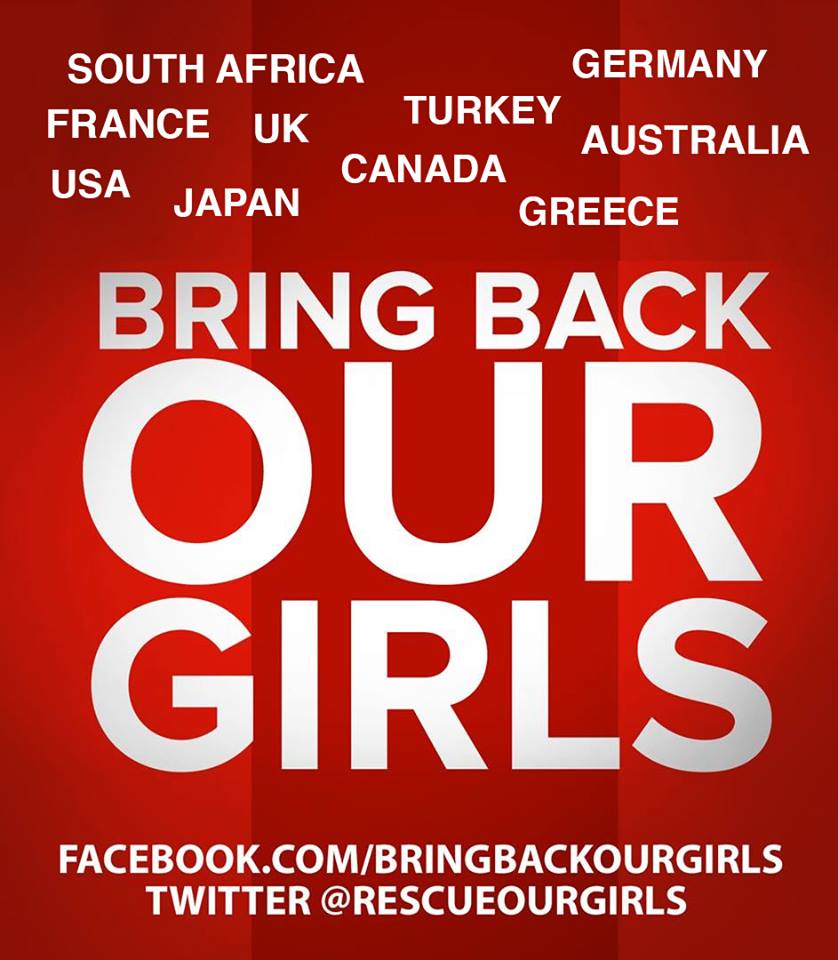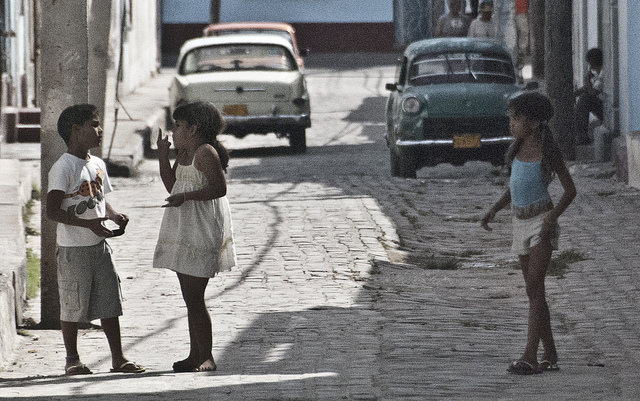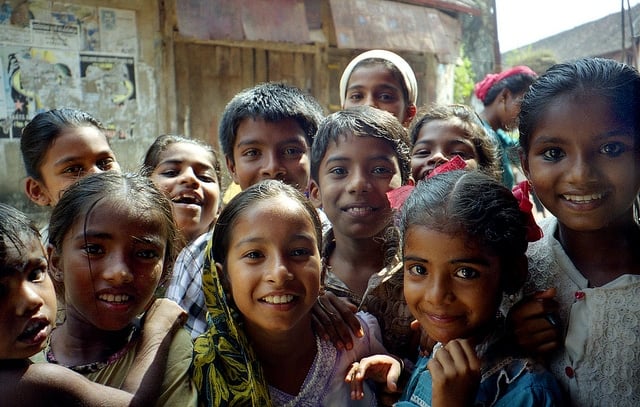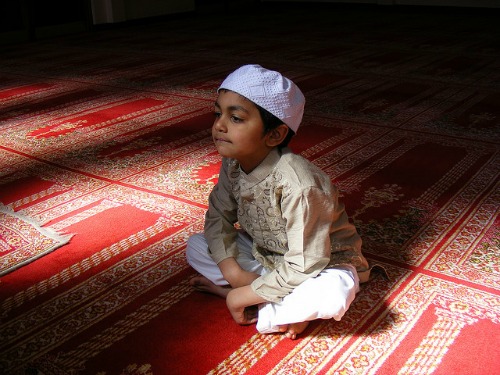
by World Moms Blog | Oct 22, 2014 | 2014, Africa, Awareness, Being Thankful, Caring, Casting a Wider Net, Communication, Economy, Education, Girls, Government, Guest Post, Helping, Human Rights, Humanitarian, Humanity, Inspirational, International, Life, Loss of Child, Media, Motherhood, Nigeria, Older Children, Poverty, Prejudice, Relationships, Safety, School, Social Equality, Terrorism, Tragedy, Women's Rights, Working Mother, World Mom Feature, World Motherhood, World Voice
 “My daughter said she was going to go to school so that she can wipe away my tears. How is she wiping my tears away in the den of the terrorists?”
“My daughter said she was going to go to school so that she can wipe away my tears. How is she wiping my tears away in the den of the terrorists?”
-mother of one of the #ChibokGirls, abducted on April 14th, 2014, speaking on Day 188 of their abduction -October 19th, 2014
As I looked at her I realized that all this woman’s hopes and aspirations rest on her daughter. For most of the poor people in this part of the world, children are like a source of pension; they are the ones that will help you in the future. They are the ones that will take care of you in your old age, when you are unable to look after yourself. They represent life. As I looked at her I also realized that her daughter means more to her than I can ever imagine. Her daughter is her everything. A source of hope.
These parents are ready to give their lives for their children to have an education. That was what the #ChibokParents did. Amidst the insecurity in Nigeria, they still wanted their children to be educated to better their positions in life. They knew the only way to break the shackles of poverty was through education. For daring to send their children to school to have a better life, instead they have been punished.
These children grow up to not only take care of their parents but siblings as well so that a generation of people who have survived the shackles of poverty would emerge.
For some, poverty is going to school in the morning without breakfast and returning home not expecting lunch but still striving everyday to be in school so that one day you will look back and say I SURVIVED (I AM A SURVIVOR).
I remember one of the fathers at one of our Sit Ins for the #BringbackOurGirls campaign—which started on April 30th with a protest demanding for the rescue of #ChibokGirls—saying he does not have a Television. All he has is a Radio from which he gets to hear of our activities. I wept! In this day of iPads, Tablets, iPhones and what have you, someone does not have a simple television that most of us take for granted.
So now you can begin to understand that to the #ChibokParents these girls are much more than daughters, they are future benefactors
A lot of parents, especially mothers, are forced to live a life of servitude and poverty in order for their children to be educated. The education that is taken for granted in most developed countries is not so in Nigeria and many other African countries.
I remember growing up and how my parents had to struggle to make sure we were educated. We often had to go without food when the situation grew dire but never were my school fees unpaid. I remember my father trekking long distance to buy a textbook I needed badly because the money was not enough for him to pay for a bus. All the suffering was for the children to be able to break the vicious cycle of poverty and one day to be able to take care of ourselves and also take care of our parents and siblings.
A lot of parents invest all they have in their children. For those who are poor, they do not have cars, houses or any investments. All they have are their children. Can you imagine these children being abducted, as is the case with the #ChibokGirls, abducted from school, where they wanted to get an education and make life better for themselves and their families? When these children of the poor are abducted and taken away, the future of a whole generation also is taken away.
As I looked at the woman with tears streaming down her face, all I could see was my own mum, who had to be the head-of-household, who worked all day and night to ensure I had an education. I look back to the days when there was no food to be eaten and yet we found our way to school. I thought of what a burden it must have been for my parents to get us educated, to sacrifice all that they had.
While some of my parent’s contemporaries were busy enjoying life in the way they could with what they had, my parents tightened their belt to make sure that we, their children, had an education and of course today we are their pension. If any of us had been abducted while seeking an education, where would we be today?
As I stood watching the Chibok mother, all I could think about was my mother struggling to give her children the life she did not have and how hard she worked to provide that for us. I thought of my mother, now living in the lap of luxury because she worked so hard four sake. As I stood looking at the Chibok Mother, I realized she too must be allowed to break the shackles of poverty. She too must live in comfort, as her daughter promised her. Her tears must be wiped away. As I stood looking at her I realized that I cannot stop demanding for the rescue of the #ChibokGirls, for that Chibok mother who has given her all, hoping that one day her tears would be wiped away.
I realized that I must demand the rescue of the Chibok girls.We all must.
Demanding the safe return of the Chibok girls to me is like making a demand for the ME that was 23 years ago. As I stood I realized that no matter how hard it gets, no matter how much we are intimidated and harassed, no matter the threat of arrest from our government, I cannot afford to give up on the #ChibokGirls.
To give up on the #ChibokGirls is to give up on myself (the WHO that I have become) and to give up on the mother with tears streaming down her face, waiting for her daughter, who promised to wipe away her tears.
This is an original, Guest Post for World Moms Blog from our sister in Nigeria and mother of two, Aisha Yesufu.
Aisha Yesufu was born in Kano, Nigeria. When she turned 40, in December 2013, she decided it was time to devote her life fully to the services of others. As she describes it,
‘The first 40 years of my life I devoted to myself, so I could be financially independent and help others. But they say: you can’t help the poor by being poor yourself, so the next 40 years, God willing, I am going to devote to others; for me, a full life will be based on what positive differences I have made in the life of another.”
And in came the unfortunate tragedy of the abduction of the #ChibokGirls. Following their abduction, on April 14th 2014, Aisha joined a group of like minded people to demand the rescue of the 219 school girls, who still today remain in the hands of the terrorists. These girls, between the ages of 16 to 18, were abducted from their school, in their quest for knowledge. The group known as the #Bring Back Our Girls campaign has been able to push the issue of their rescue in public discussion both locally and internationally.
Aisha is the coordinator of the daily Sit In for the #BringBackOurGirls campaign group. The group has, without fail, come out daily since the 30th of April, 2014, despite all forms of intimidations and harassment by sponsored persons.
To get involved in the conversation and learn more about the plight of the 219 Nigerian School Girls, visit: #BringBackOurGilrs
World Moms Blog is an award winning website which writes from over 30 countries on the topics of motherhood, culture, human rights and social good. Over 70 international contributors share their stories from around the globe, bonded by the common thread of motherhood and wanting a better world for their children.
World Moms Blog was listed by Forbes Woman as one of the "Best 100 Websites for Women 2012 & 2013" and also called a "must read" by the NY Times Motherlode in 2013. Our Senior Editor in India, Purnima Ramakrishnan, was awarded the BlogHer International Activist Award in 2013.
More Posts

by Susan Koh | Oct 9, 2014 | 2014, Awareness, Childhood, Domesticity, Family, Husband, Life Lesson, Marriage, Motherhood, Parenting, Relationships, Singapore, Stress, Susan Koh, Womanhood, World Motherhood, Younger Children
 Among all the parenting rules in the book, no quarreling in front of the kids must rank pretty high up there. But, it’s the one that my husband and I have been flouting a lot lately, when our little five-year-old is around. And while we don’t choose to quarrel in full view of Sophie, arguments sometimes get over heated with voices raised and a quarrel ensnares. And when our voices rise, Sophie catches our bickering.
Among all the parenting rules in the book, no quarreling in front of the kids must rank pretty high up there. But, it’s the one that my husband and I have been flouting a lot lately, when our little five-year-old is around. And while we don’t choose to quarrel in full view of Sophie, arguments sometimes get over heated with voices raised and a quarrel ensnares. And when our voices rise, Sophie catches our bickering.
As much as we try to avoid conflict in our marriage, this is real life, where we have our failings keeping our tempers in check. As they say, familiarity breeds contempt.
I’m not proud that my daughter has to witness it, especially since she has a sensitive soul and picks up on the negative vibes quickly. And it’s even worse, when she thinks that mummy and daddy don’t love each other anymore because of our quarreling.
Last week, hubby and I had a heated arrangement over my complete lack of organizational abilities, which sent me flying into a rage because I was already halfway through packing. With more to and fro with his expectations and my explanations, neither was ready to step back or cool off. Before we knew it, there was a shouting match.
Sophie heard the commotion and came to my room and from the corner of my eye I could see her fear.
Intermittently, my little one even jumped to my defense and told daddy to stop scolding me because I was already trying my best to pack. Her words, though comforting, also felt like a sting and made me feel so guilty that she had to see the two people that she loved most in such an ugly argument. After I calmed down, hubby finally decided to help me pack as well and we both got working.
After 15 minutes little Sophie came back with a smile on her face and said:
See mummy and daddy you’re working together. You are a team now.
Those are words of gold coming from my five-year-old.
After we were done packing, we gave each other hi-fives for work well done. I even apologized for my lousy attitude to hubby and thanked him for helping, making sure that it was within Sophie’s ear-shot. I could see her beaming away.
As a mum, I sometimes forget that kids learn what they see and not what they hear. As much as we try to teach them to behave in a certain way, it’s what we model that will be a standard for them. And while quarreling in front of the kids is still a no no in my opinion, children learn that parents are also human. Parents can make mistakes but what matters is having the humility to apologize and ask for forgiveness.
At the end of the day, we are far from being perfect and can only endeavor to be better dads or mums for our kids.
This is an original post for World Moms Blog from our writer in Singapore, Susan Koh of A Juggling Mom.
The image used in this post is credited to Matt Smith and holds a Flickr Creative Commons attribution license.
Susan is from Singapore. As a full-time working mom, she's still learning to perfect the art of juggling between career and family while leading a happy and fulfilled life. She can't get by a day without coffee and swears she's no bimbo even though she likes pink and Hello Kitty. She's loves to travel and blogs passionately about parenting, marriage and relationship and leading a healthy life at A Juggling Mom.
More Posts

by Susie Newday (Israel) | Oct 1, 2014 | 2014, Awareness, Israel, Life, Parenting, Relationships, Susie Newday, World Motherhood

I love watching little kids discover the excitement of building blocks. Their pudgy little fingers slowly stack one brick on top of another squealing with amazement when the lopsided house they built comes tumbling down.
Kids might not realize it, but we all know that a house build on a shaky, soft or unsteady foundation will never weather the elements or the test of time. Our lives are the metaphorical houses built out of the relationships woven into them.
From our first day on this planet, are lives are all about relationships. No matter which way we turn we can’t escape them. Even when we force ourselves into seclusion we can’t escape the relationship we have with ourselves. From the moment we are born, until the day we die, we build our lives one relationship at a time. Some are loving and successful relationships, while others are draining and weaken the fabric of our self esteem and lives.
So what makes some relationships better than others? What is the one key element that is found in every single successful relationship? What is the foundation of every strong union between two people? What is the most important building block that lends strength to our very essence?
Respect. Not one sided respect. Mutual respect.
It’s a simple word that rolls easily off our tongues, sometimes even said with casual irreverence. The question is how well, if at all, do we put it into action in our day to day lives?
Think about every heated argument you’ve ever had with anyone and I can promise you that if you break it down to the basics, there was no mutual respect between the parties. Each side wanted something badly enough to not treat the other side with respect.
Treating someone with respect does not mean agreeing with them. Treating them with respect means that you can hear their point of you, you can disagree with them and still love them for the amazing person they are.
When there is respect, compromise is easy because it is coming from a place of love and appreciation, and it’s not a feeling of having given in. It’s a feeling of give and take.
So how do you put mutual respect into action. Simply put, you need to work hard at treating other people the way you want to be treated. When you treat with respect, you will be treated with respect.
What do you think is the most important building block for relationships?
This is an original post to World Moms Blog by our contributor, Susie Newday in Israel. You can find her on her blog New Day New Lesson.
Photo credit to the author.
Susie Newday is a happily-married American-born Israeli mother of five. She is an oncology nurse, blogger and avid amateur photographer.
Most importantly, Susie is a happily married mother of five amazing kids from age 8-24 and soon to be a mother in law. (Which also makes her a chef, maid, tutor, chauffeur, launderer...) Susie's blog, New Day, New Lesson, is her attempt to help others and herself view the lessons life hands all of us in a positive light. She will also be the first to admit that blogging is great free therapy as well. Susie's hope for the world? Increasing kindness, tolerance and love.
You can also follow her Facebook page New Day, New Lesson where she posts her unique photos with quotes as well as gift ideas.
More Posts - Website
Follow Me:






by Maureen | Sep 18, 2014 | 2014, Awareness, Childhood, Communication, Divorce, Family, Husband, Indonesia, Kids, Life Lesson, Motherhood, Parenting, Relationships, Scoops of Joy, Single Mother, World Motherhood, Younger Children
Divorce is difficult for adults. Divorce is difficult for children. It is difficult for everyone. No doubt about it. I had sailed through it. Not a smooth sailing – mind you – but I learnt so much through the process. (more…)

by World Moms Blog | Aug 28, 2014 | 2014, Awareness, Being Thankful, Childhood, Cultural Differences, Culture, Domesticity, Education, Eye on Culture, Family, Grandparent, Guest Post, Home, India, International, Kids, Life Lesson, Motherhood, Nutrition, Parenting, Relationships, Traditions, World Motherhood, Younger Children
 Motherhood is one of the most beautiful experiences of a woman’s life. Raising children makes life full. I am raising my children in India and I feel that the environment in India helps a lot in inculcating a strong set of values.
Motherhood is one of the most beautiful experiences of a woman’s life. Raising children makes life full. I am raising my children in India and I feel that the environment in India helps a lot in inculcating a strong set of values.
I read a lot about the many ways children are raised in various parts of the vast Indian subcontinent. Here are some of the enriching reasons I find raising a child in India so wonderful:
1. Family Help: India is a country where the joint family system is prevalent. Children grow up having a lot of fun surrounded by generations of Grandparents, Uncles, Aunts and Cousins. This helps the child in her personal growth and instills great concepts like teamwork and adjusting to different kinds of people, with different mindsets. It also helps a child understand how to receive and give unconditional love.
Sadly, the joint family is breaking up nowadays and giving way to nuclear families. The nuclear family comprises of just the husband, wife and children. Sometimes, the husband’s parents come to stay. This helps build a strong bond between the children and the grand parents, which should be encouraged. The child will learn to respect traditional values which are an integral part of the Indian social fabric.
2. Learning to Respect Your Elders: Indian children are taught to respect their elders and extended family at a young age. Being around so many family members, children learn to show respect and love to one and all when they grow up. Some communities in India make it compulsory for the young people to touch the feet of the elders as the mark of reverence.
This custom is rarely found in any other culture across the world. This custom is instilled in the child’s mind from a very young age and it becomes second nature. This custom hasn’t changed even after western ideas and practices stealthily crept into India.
3. Kids Are Taught How to Save: Children in India are taught to save and not spend unnecessarily. Due to the conservative economy, Indian children learn at a very young age to prioritise their expenses. They learn to buy things which will give them value for money.
Nowadays many banks offer the option to open minor accounts for very small children. Instead of having children save their pocket money in piggy banks, they can save it in real banks. This teaches the child banking procedures at a very early age. Children can even maintain a separate copy for calculating the total expenditure. This will teach the child that it is not good to waste money.
4. Family Values: Children are inculcated with strong family values as they grow up among numerous family members. These family values help develop strong moral fiber. In the long run, they help in creating a strong personality which helps in their growth.
5. Character Development: Character defines how the child leads a holistic life. Parents in India work hard on character building for their child. Since all parents’ desire that their child grows up to become an honest and good human being.
6. Spiritual Discipline: Indian children are raised with enormous spiritual discipline. India is the land for spiritual growth and developing the spiritual qualities in a child helps him/her grow up to be a better individual. Children are taught about the importance of religion and customs. They are also taught to respect other religions as well, since the common idea of all religion is to achieve peace, moral strength and happiness.
7. Freedom When They Play: There is no requirement for an organized play time. A child will always find a group of children playing outside his house. So they can always find fun. They can step out any moment and experience a joyous playtime. Open spaces or children’s parks are still there and are not encroached by developmental activities and high rises.
8. Sharing and Caring: There is a lot of sibling bonding in Indian families. Parents teach children tolerance towards each other, love and patience. By sharing and caring for each other, this turns them into well-adjusted human beings.
9. Celebrating Traditions: India has one of the richest cultures which dates back more than 5000 years. So India is a land of festival and colors, cliché as it may sound, it is true. These celebrations are elaborate. All the kids are involved in the celebration of the festivals with the other children in the community. The children celebrate the festivals with their families and extended families.
10. Healthy Eating Habits: Emphasis is laid on eating healthy food. Children are allowed to eat junk food once in a while, but mothers cook at home. They are happy to feed the children with home cooked food. This makes the child health conscious. Mothers teach their children to choose healthy fresh fruits and vegetables. This also increases their knowledge about what is good for them.
The above stated facts hold true for a small portion of the Indian population, as the phrase goes ‘the privileged few’. Economically, India has progressed considerably in the last 60 years. The bigger picture, however, is quite different: a farmer hangs himself from a tree because he cannot provide for his family; a child is shunned from temples and public places due to his lower caste label; the rampant poverty in villages and lack of health amenities lead to reduced life expectancy; more children are seen carrying bricks and working in factories than in classrooms. These are children who don’t have access to formal education at all.
But for increasingly more kids, growing up in India is a blissful experience which helps them develop into amazing individuals. The calmness of spirit and the enriching environment in India is what gives these children an opportunity to explore life and themselves. The liveliness of the child is based on the amazing cultural forum that the Indian child inherits.
In contrast, malnourished children peddle the streets and somehow make a living. They are deprived of things that my child claims as basic rights. We have small children selling chai when they should be drinking a warm glass of milk instead. Yet from children like these, a leader has emerged – Narendra Modi. The contradictions and ironies of my country keep me enthralled. I trudge forward in earnest hope that my child will triumph in all spheres of her life.
Also, the technological development and fast paced life have made us so busy that we are finding less and less time for each other but still Indians never forget to smile at one another. Children brought up in India will never lose heart, since they have learned to struggle and attain victory in all fields of life. But to make that happen, we need to remember the wisdom Dr. Seuss imparted:
“Unless someone like you cares a whole awful lot, nothing is going to get better. It’s not.” — The Lorax
The image used in this post is credited to Ryan Ready. It holds a Flickr Creative Commons attribution license.
This is a first-time, guest post from Aradhana, a mother in India. Aradhana also is a passionate writer, who focuses on topics like yoga, wellness, health and lifestyle. She has contributed posts to Natural News, Wiki How, MomJunction, and Elephant Journal. Through her writings, she hopes to motivate people to develop healthy habits and adopt natural ways of living to achieve sound health.
World Moms Blog is an award winning website which writes from over 30 countries on the topics of motherhood, culture, human rights and social good. Over 70 international contributors share their stories from around the globe, bonded by the common thread of motherhood and wanting a better world for their children.
World Moms Blog was listed by Forbes Woman as one of the "Best 100 Websites for Women 2012 & 2013" and also called a "must read" by the NY Times Motherlode in 2013. Our Senior Editor in India, Purnima Ramakrishnan, was awarded the BlogHer International Activist Award in 2013.
More Posts

by Salma (Canada) | Aug 1, 2014 | 2014, Bilingual, Canada, Childhood, Communication, Cultural Differences, Culture, Education, Family, Homeschooling, Language, Life Lesson, Multicultural, Relationships, Religion, Salma, Traditions, World Moms Blog, World Motherhood, Younger Children
 On her visit to our home last October my mother had a lot of one-on-one time with my three year old son. While I was in the hospital giving birth to my fifth child, she was asking some serious questions. In this short period of time my mother came to a serious conclusion; her grandson doesn’t know about God. (more…)
On her visit to our home last October my mother had a lot of one-on-one time with my three year old son. While I was in the hospital giving birth to my fifth child, she was asking some serious questions. In this short period of time my mother came to a serious conclusion; her grandson doesn’t know about God. (more…)

An Imperfect Stepford Wife is what Salma describes herself as because she simply cannot get it right. She loves decorating, travelling, parenting,learning, writing, reading and cooking, She also delights in all things mischievous, simply because it drives her hubby crazy.
Salma has 2 daughters and a baby boy. The death of her first son in 2009 was very difficult, however, after the birth of her Rainbow baby in 2010 (one day after her birthday) she has made a commitment to laugh more and channel the innocence of youth through her children. She has blogged about her loss, her pregnancy with Rainbow, and Islamic life.
After relocating to Alberta with her husband in 2011 she has found new challenges and rewards- like buying their first house, and finding a rewarding career.
Her roots are tied to Jamaica, while her hubby is from Yemen. Their routes, however, have led them to Egypt and Canada, which is most interesting because their lives are filled with cultural and language barriers. Even though she earned a degree in Criminology, Salma's true passion is Social Work. She truly appreciates the beauty of the human race. She writes critical essays on topics such as feminism and the law, cultural relativity and the role of women in Islam and "the veil".
Salma works full-time, however, she believes that unless the imagination of a child is nourished, it will go to waste. She follows the philosophy of un-schooling and always finds time to teach and explore with her children. From this stance, she pushes her children to be passionate about every aspect of life, and to strive to be life-long learners and teachers. You can read about her at Chasing Rainbow.
More Posts - Website

“My daughter said she was going to go to school so that she can wipe away my tears. How is she wiping my tears away in the den of the terrorists?”














 On her visit to our home last October my mother had a lot of one-on-one time with my three year old son. While I was in the hospital giving birth to my fifth child, she was asking some serious questions. In this short period of time my mother came to a serious conclusion; her grandson doesn’t know about God.
On her visit to our home last October my mother had a lot of one-on-one time with my three year old son. While I was in the hospital giving birth to my fifth child, she was asking some serious questions. In this short period of time my mother came to a serious conclusion; her grandson doesn’t know about God. 


